-

- Tuesday, October 3, 2023
- Sponsors: Anthropology, Center for the Political Future, Gender and Sexuality Studies, Institute on Inequalities in Global Health, Keck School of Medicine, Politics and International Relations, Price School of Public Policy, Sociology, USC Dornsife Center for International Studies, Levan Institute for the Humanities
- Description: The right to health is fundamental to the human condition, yet achieving sexual health remains an elusive goal. Rates of sexually transmitted infections continue to climb across the world, and with uneven access to effective HIV prevention methods. Anthropologically-informed public health analyses demonstrate the ways in which social and structural factors serve to sustain and strengthen disparities of sexual health opportunity and outcome in the context of globalization. Dr. Bradley Stoner is Professor and Head, Department of Public Health Sciences and Professor of Medicine at Queen’s University, Kingston, ON Canada. His research focuses on the clinical epidemiology of sexually transmitted diseases and sociocultural factors which influence infectious disease risk in human populations. He is the former Chief of STD Services for the St. Louis County (MO) Department of Health, and Medical Director of the CDC-funded St. Louis STD/HIV Prevention Training Center. He also served as Chair of the CDC/HRSA Advisory Committee (CHAC) on HIV, Viral Hepatitis, and STD Prevention and Treatment. He is Past-President of the American Sexually Transmitted Diseases Association (ASTDA), and currently serves as North American Regional Director for the International Union Against Sexually Transmitted Infections (USTI. He is board-certified in infectious diseases and internal medicine.
-
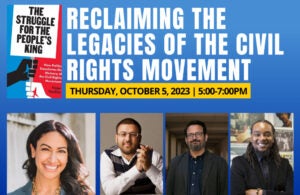
- Thursday, October 5, 2023
- Sponsors: Department of Sociology, Levan Institute for the Humanities
- Description:In the post-civil rights era, wide-ranging groups have made civil rights claims that echo those made by Black civil rights activists of the 1960s, from people with disabilities to women’s rights activists and LGBTQ coalitions. Increasingly since the 1980s, white, right-wing social movements, from family values coalitions to the alt-right, now claim the collective memory of civil rights to portray themselves as the newly oppressed minorities. In The Struggle for the People’s King, Hajar Yazdiha reveals how, as these powerful groups remake collective memory toward competing political ends, they generate offshoots of remembrance that distort history and threaten the very foundations of multicultural democracy. Powerful and persuasive, The Struggle for the People’s King demonstrates that these oppositional uses of memory fracture our collective understanding of who we are, how we got here, and where we go next. Featuring Hajar Yazdiha, USC Assistant Professor of Sociology and USC Equity Research Institute Affiliate Faculty; Walter J. Nicholls, UCI Professor of Urban Planning and Public Policy; Marcus Anthony Hunter, UCLA Professor of Sociology, Professor of African American Studies, and Scott Waugh Endowed Chair in the Division of the Social Sciences; and moderated by Varun Soni, USC Dean of Religious Life.
-
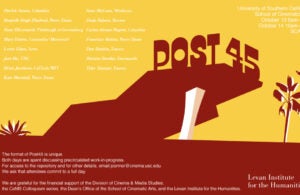
- Saturday, October 14, 2023
- Sponsors: School of Cinematic Arts, Levan Institute for the Humanities
- Description: Post45 is a collective of scholars working on American literature and culture since 1945. The group was founded in 2006 and has met annually since to discuss new work in the field. In addition to its signature conference, Post45 publishes an award-winning journal (post45.org) and an award-winning book series (Stanford UP). The conference format is somewhat unique. Invited presenters precirculate ~20 pp. of work in progress. Pairs of papers are discussed in 90–minute blocks. The discussion cumulates across the two days, so we ask that respondents commit to at least a day rather than drop in to discuss an individual essay. To facilitate the continuous discussion, lunch is provided. There is a celebratory dinner for all Saturday night.
-
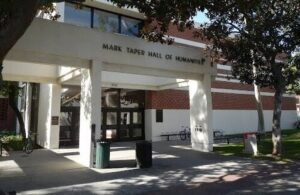
- Friday, October 27, 2023
- Sponsors: Early Modern Studies Institute, Levan Institute for the Humanities
- Description: Archbishop Feofan Prokopovich (1681-1736) is a well-recognized figure in Ukraine and Russia. Although known primarily as an intrepid church reformer, the archbishop was also the chief ideologist of Tsar Peter I, a poet, a jurist, a linguist, a craft brewer, and a prolific scientist, among other things. As such, he was a true “universal man” (to translate the Italian Renaissance term uomo universale) of the East Slavic Enlightenment. This talk by Prof. Andrey Ivanov (University of Wisconsin) will focus on the key intersections between science and empire found in the archbishop’s life, and what role his scientific inquiry played in Petrine empire building.
-
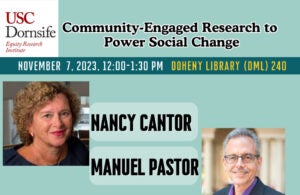
- Tuesday, November 7, 2023
- Sponsors: Center on Science, Technology, and Public Life, Center for Religion and Civic Culture, Center for Latinx and Latin American Studies, Levan Institute for the Humanities
- Description: Chancellor Cantor and Dr. Pastor discuss how research centers can build structures for community-engaged research within university systems.
-
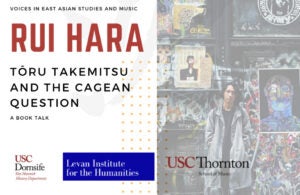
- Wednesday, November 29, 2023
- Sponsors: Van Hunnick Department of History, USC Thornton School of Music, Levan Institute for the Humanities
- Description: On November 29 at 11am, Rui Hara, PhD, from Kyoto University, will present research from his recent monograph on the music of Tōru Takemitsu. In 1971, Japanese postwar composer Tōru Takemitsu (1930-1996) published his first collection of essays titled Conflonting Silence. The term “Silence 沈黙”, like “Ma 間”, is often regarded as a concept that well represents Takemitsu’s oriental aesthetics. His music contains many pauses in which his unique chords gradually disappear, and if we understand these pauses as “Silence,” it can be considered a device which encourages listeners to listen to the lingering sounds carefully. On the other hand, given that many of the essays in the book were written in the 1960s, when Takemitsu was under the strong influence of American composer John Cage (1912- 1992), who came to Japan in 1962, it is also possible to suppose that Takemitsu’s concept of silence implies that of Cage: unintentional sounds, or sound itself. In this presentation, I will read Takemitsu’s essays hermeneutically and reveal how Takemitsu was fascinated by Cagean world of unintentional sounds and thus struggled with the dichotomy between constructing the work and letting sound be the sound itself. Eventually, Takemitsu discovered how to confront Cagean silence, using graphic notations and traditional Japanese instruments. By clarifying this process, I will shed new light on Takemitsu’s creation in the 1960s.
-
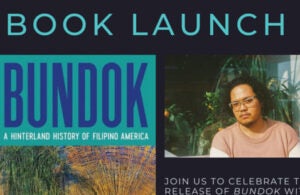
- Monday, December 4, 2023
- Sponsors: American Studies & Ethnicity, East Asian Studies Center (EASC), Levan Institute for the Humanities
- Description: Join us to celebrate the release of BUNDOK: A Hinterland History of Filipino America with catering from Lasita and a conversation with Professor De Leon, Assistant Professor of American Studies and Ethnicity at USC. Professor De Leon will be joined in conversation by Ann Tran, PhD Candidate in American Studies and Ethnicity at USC, Brian Bernards, Associate Professor of East Asian Languages and Comparative Literature at USC, and Sarita See, Professor of English at UC Riverside.
-

- Thursday, February 8, 2024
- Sponsors: The Civic Imagination Project, Center for the Premodern World, Department of French & Italian, Early Modern Studies Institute, Levan Institute for the Humanities
- Description: A new film about the sixteenth-century Duke of Florence, Alessandro de’ Medici, known as Alessandro il Moro.
-
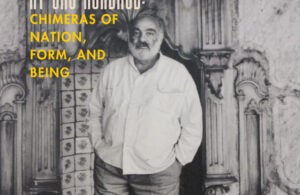
- Thursday, February 22, 2024
- Sponsors:
- USC Dornsife Institute of Armenian Studies, Slavic Languages and Literatures, Comparative Literature, Art History, Politics and International Relations, USC Dornsife Center for International Studies, Levan Institute for the Humanities
- Description: Drawing inspiration from Parajanov’s description of himself as a chimera, this centennial conference organized by the USC Dornsife Institute of Armenian Studies and USC Department of Slavic Languages and Literatures aims to examine the myriad border crossings and hybridities that characterize his life and oeuvre.
-
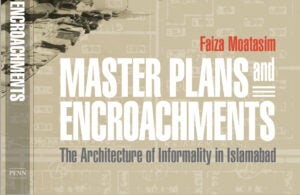
- Friday, March 1, 2024
- Sponsors: School of Architecture, Levan Institute for the Humanities
- Description: Join the author, Faiza Moatasim, Assistant Professor of Architecture in Urbanism and Urban Design at the USC School of Architecture in discussion with Vinit Mukhija, Professor, Luskin School of Public Affairs, UCLA. The latest book by Faiza Moatasim is the first book to examine how city planning and modern urbanism emerge from the informal practices of both the privileged and the underprivileged. Master Plans and Encroachments examines informality in the high-modernist city of Islamabad as a strategic conformity to official schemes and regulations rather than as a deviation from them. Moatasim shows how Islamabad’s master plan is not simply a blueprint that guides future urban development or makes its violations apparent; it is used by both city officials and citizens to develop informal spaces that accommodate unfulfilled needs and desires of those living and working in the city. The book highlights how low-, middle-, and upper-income people do not randomly build informal spaces; they strategically use architectural techniques to support their informal claims to space, which are often met with the government’s tacit approval. By focusing on those spaces in Islamabad’s urban fabric that are not part of its official master plan, the book demonstrates how planning actually works in complex ways.
-

- Monday, March 18, 2024
- Sponsors: American Studies & Ethnicity: Creativity, Theory, and Politics Research Cluster, Levan Institute for the Humanities
- Description: Jackie Wang in conversation with Latinx poet Christopher Soto. A virtual event for the publication of Jackie Wang’s ‘Alien Daughters Walk into the Sun: An Almanac of Extreme Girlhood.’
-
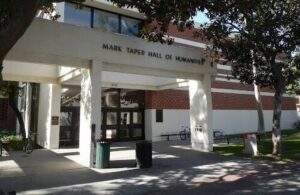
- Friday, March 22, 2024
- Sponsors: Slavic Languages and Literatures, Levan Institute for the Humanities
- Description: Started in 2012 at the University of Illinois at Chicago, this annual event has a new topic every year. The 2024 theme is “Women, Innovation, and the Making of Modernity.” Modernity is conventionally aligned with the movement of time’s arrow: concepts of progress, development, discovery, and innovation all point inexorably forward and promise societal and even biological betterment. In the annals of history, men predominate as primary drivers of scientific discovery and literary experimentation, both of which are often instrumentalized to aid progress and its discursive construction. This year’s Workshop on Russian & Eurasian Modernisms examines women’s cultural innovations that complement, problematize, and/or challenge narratives of modernity as a male-driven phenomenon. Featuring Lilya Kaganovsky (UCLA), Matt Kendall (UIC), Konstantine Klioutchkine (Pomona), Colleen McQuillen (USC), Anne Eaken Moss (U Chicago), Sasha Senderovich (U Washington), Julia Vaingurt (UIC), and Lisa Cooper Vest (USC).
-
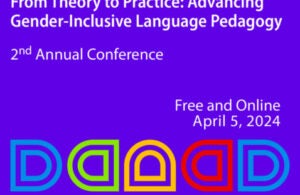
- Friday, April 5, 2024
- Sponsors: USC Center for Languages and Cultures, East Asian Languages and Cultures, Latin American and Iberian Cultures, French and Italian, German Studies Program, Levan Institute for the Humanities
- Description: From Theory to Practice: Advancing Gender-Inclusive Language Pedagogy. Our Second Annual Conference on Gender-Inclusive Language Pedagogy will take place on April 5, 2024 online. This conference emerges from the expanding awareness among educators about the importance of gender diversity and inclusion in the classroom. As the need to cultivate safe and respectful spaces for discussing a range of experiences and identities becomes more evident, there’s an escalating demand for effective methods to incorporate gender-inclusive language in teaching. The conference “From Theory to Practice: Advancing Gender-Inclusive Language Pedagogy” seeks to unify researchers, practitioners, and members of LGBTQI+ communities in a collaborative and inclusive effort. Together, we aim to discover and disseminate best practices for fostering inclusive spaces in languages both with and without grammatical gender distinctions. Given the unique grammatical gender constructs, linguistic norms, and cultural considerations inherent to many languages, these factors can deeply influence the implementation of gender-inclusive language methods. Therefore, a key feature of our conference will be language-specific roundtable discussions (organized based on submissions) tailored to address the distinctive challenges and subtleties of each language. Educators focusing on the same language will have a dedicated forum to discuss issues inherent to their linguistic area. Attendees will be equipped with practical techniques that are both rooted in theory and adapted to the diverse linguistic landscapes.
-

- Wednesday, April 10, 2024
- Sponsors: Anthropology, French and Italian, Levan Institute for the Humanities
- Description: Please join us on Wednesday, April 10, 2024 at 2pm for “The Gender of Capital,” a lecture by Céline Bessière, professor of sociology at Paris Dauphine University and a senior member at the Institut Universitaire de France.
-
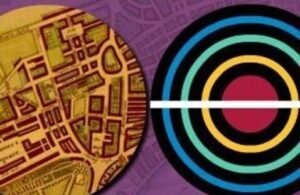
- Thursday, April 18, 2024
- Sponsors: Anthropology, Visual Studies Research Institute, Levan Institute for the Humanities
- Description: Professor Adam Kuper (London School of Economics): “The Crisis of the Museum of Other People”
-
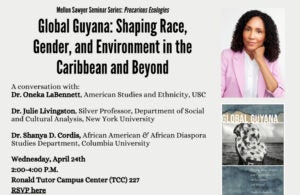
- Wednesday, April 24, 2024
- Sponsors: Mellon Sawyer Seminar Series, Center on Science, Technology, and Public Life, Center for Latinx and Latin American Studies, Africana Research Cluster, Levan Institute for the Humanities
- Description: A conversation with: Dr. Oneka LaBennett, American Studies and Ethnicity, USC Dr. Julie Livingston, Silver Professor, Department of Social and Cultural Analysis, New York University Dr. Shanya D. Cordis, African American & African Diaspora Studies Department, Columbia University. Scholars and activists from various fields contend that in ecologically and economically precarious Global South regions, the frenzied drive for participation in the global economy supports a perfect storm of climate catastrophe, environmental devastation, and violence against women and children. The Caribbean is a key site in that it bears the brunt of climate change—the Council on Foreign Relations has identified it as one of the world’s most vulnerable regions in terms of climate change. Attention to risk factors such as rising sea levels, increasing frequency of extreme weather events, dangerously high temperatures, and coastal erosion reveals the Caribbean as “ground zero” in the global climate emergency. In her new book, LaBennett uncovers how ecological erosion and gendered violence are entrenched in extractive industries emanating from this often-effaced but pivotal country. LaBennett illuminates how both oil extraction and sand export are implicated in a well-established practice of pillaging the Caribbean’s natural resources while masking the ecological consequences that disproportionately affect women and children. Sounding the alarm on the portentous repercussions that ambitious development spells out for the nation’s people and its geographical terrain, LaBennett issues a warning for all of us about the looming threat of global environmental calamity.
-
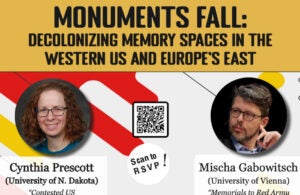
- Friday-Saturday, April 26-27, 2024
- Sponsors: Van Hunnick Department of History, Visual Studies Research Institute, Political Science and International Relations, Center for International Studies, Department of Slavic Languages and Literatures, CHARM, Max Kade Center, Institute of California and the West, Dornsife Dean of the Humanities, Levan Institute for the Humanities
- Description: Please join us for an international workshop, “Monuments Fall: Decolonizing Memory Spaces in The Western US and Europe’s East.” The workshop, which takes place on April 26 and 27, seeks to put in conversation debates over monuments, public space and decolonization that have unfolded, sometimes in similar, sometimes in dramatically different ways in the United States and in Eastern Europe, following Black Lives Matter and Russia’s invasion of Ukraine. In both regions, current events have prompted a reexamination of the relationship public spaces, museums, and universities have to colonialism, heritage, and contested memories. This two-day workshop will bring together scholars from around the broader Los Angeles region and scholars of Eastern Europe to understand how these conversations have unfolded in both regions, and what might be learned by setting them in comparative perspective. How are certain monuments deemed colonial in origin? What kinds of strategies have been used to deal with colonial monuments? How do certain aesthetic, spatial, and representational techniques become signifiers of colonial power? And how can the fight over the fate of monuments in Eastern Europe inform the broader conversation over the decolonization of public space in the global North? The program includes panels on politics and local organizing, museums, questions of indigeneity, urban spaces and capital, and the place of universities and scholars in these conversations. We hope faculty and graduate students interested in heritage, decolonization, indigeneity, public memory, art history, architecture, critical urban studies, studies of the SEEES region and of the US will be able to attend. Featuring a keynote by Cynthia Prescott (University of N. Dakota) on “Contested US Pioneer Memory” and Mischa Gabowitsch (University of Vienna) on “Memorials to Red Army soldiers from 1989 to Russia’s war on Ukraine.” Participants include: Bart Pushaw (U. of Tenn., Chattanooga), Catherine Gudis (UC Riverside), Carol Wise (USC), Elizabeth Logan (Huntington-USC IOW), Erica Morale (USC), Joely Proudit (CSU San Marcos), Unda Kaljundl (MIT / Estonlan Academy of Arts), Miloš Jovanovic (UCLA), Naomi Sussman (USC), Rebecca Hall (USC Paclic Asla Museum), Trudi Sandmeler (USC), Vanessa Schwartz (USC), Victoria Donovan (U. of St Andrews), and Wendy Salmond (Chapman U.).
Header image: The North American Indian, vol. 11, Makah basketry, 1915, USC Libraries Special Collections
Contact Us
Office
3501 Trousdale Parkway
THH 348
Los Angeles, CA 90089
Staff
Director: Rebecca Lemon
Associate Director: Zachary M. Mann

